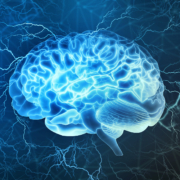How and why neurological issues affect sleep
One of the biggest indicators of a neurological disorder are changes in a person’s sleep habits.
For instance, sleep issues are one of the earliest signs of Parkinson’s disease, and sleep loss can increase your risk of Alzheimer’s disease. Research also shows that disruption of sleep for any reason can increase your risk for or cause an earlier onset of neurodegenerative disease.
“The relationship between sleep disturbances and the brain is a symbiotic one,” said Dr. Hrayr Attarian, MD, professor of neurology at Northwestern University’s Feinberg School of Medicine.
While researchers are learning more about some of the ways neurological disease and sleep collide, there is research underway right now that is focusing on pleiotrophin (PTN), a protective protein, since levels of this protein have been found in animal studies to decline with sleep deprivation.
“We’re also looking closely at the effect chronic sleep issues have on the brain, including how the glymphatic system, which drives brain fluid, connects to neurodegenerative disease,” said Dr. Michelle Drerup, a clinical psychologist and director of the behavioral sleep medicine program at the Cleveland Clinic Sleep Disorders Center. “Researchers are finding that the glymphatic system is more active when we sleep, that it clears beta-amyloids and plaque, and [that] this might be critical for our understanding of how diseases like Alzheimer’s emerge.”
Here, the ways in which five neurological diseases affect sleep.
Amyotrophic Lateral Sclerosis (ALS)
Recent research indicates that individuals with this progressive neurodegenerative disease that affects nerve cells in the brain and spinal cord have a hard time breathing during sleep.
“This starts off when ALS patients are sleeping and this eventually becomes something they experience 24 hours a day,” Dr. Attarian said. He added that during REM sleep, “voluntary muscles tend to be paralyzed except for the ones in the diaphragm, and this affects ALS patients extensively as they tend to have diaphragmatic dysfunction.”
Alzheimer’s Disease
One of the biggest issues for Alzheimer’s patients is that their sleep/wake cycles (and circadian rhythms) become disrupted. Dr. Drerup said that researchers don’t yet know which comes first—whether the disruption contributes to Alzheimer’s or if Alzheimer’s causes the disruption.
“When you have Alzheimer’s, there is a disturbance in the boundaries between wake and sleep cycles that occur within the networks of the brain’s temporal lobe,” Dr. Attarian explained. “In addition, Alzheimer’s patients tend to sleep in multiple chunks during the day and then they can’t sleep at night.”
Epilepsy
When you have epilepsy, the brain undergoes abnormal electrical rhythms that are highly synchronized with each other. This prompts insomnia and daytime sleepiness. In turn, it also diminishes the quality of sleep.
“Sleep quality is one of the key determinants of quality of life among patients with epilepsy,” Dr. Attarian said. He added that because of the synchronous activity in the brain during non-REM sleep, seizures are more likely to happen. “When you have even brief abnormal electric activity in the brain, your sleep will inevitably be disturbed” Dr. Attarian noted.
Multiple Sclerosis
For those with MS, an autoimmune disease caused by a breakdown of the fatty insulating layer that protects the nerves in the brain and spinal cord, sleep issues can be a huge problem. Dr. Attarian said one of the reasons this happens is because sleep and wake cycles are controlled by memory centers and thin fibers in our brains. Under the weight of this strain, Dr. Attarian said many MS patients simply forget when to sleep.
Movement disorders
REM sleep behavior disorder—a condition where patients jump out of bed or act out their dreams while in bed—can be a symptom of Parkinson’s disease and Lewy Body Dementia, as well as several other movement disorders, or it can be an early warning of the onset of a progressive neurological disorder.
Dr. Attarian said Parkinson’s is caused by a gradual loss of dopamine-producing neurons in the brain, and the parts of the brain that are heavily dopamine reactive become no longer active during REM sleep.
“We don’t know why the cells that create dopamine are lost during Parkinson’s, but we know that this is why sleep is affected so intensely for these patients,” he said.
Ultimately, keeping an eye on your sleep habits is key not only to good health but to make sure you aren’t developing neurological issues later in life.
This article has been factchecked. For more about that process, click here.









